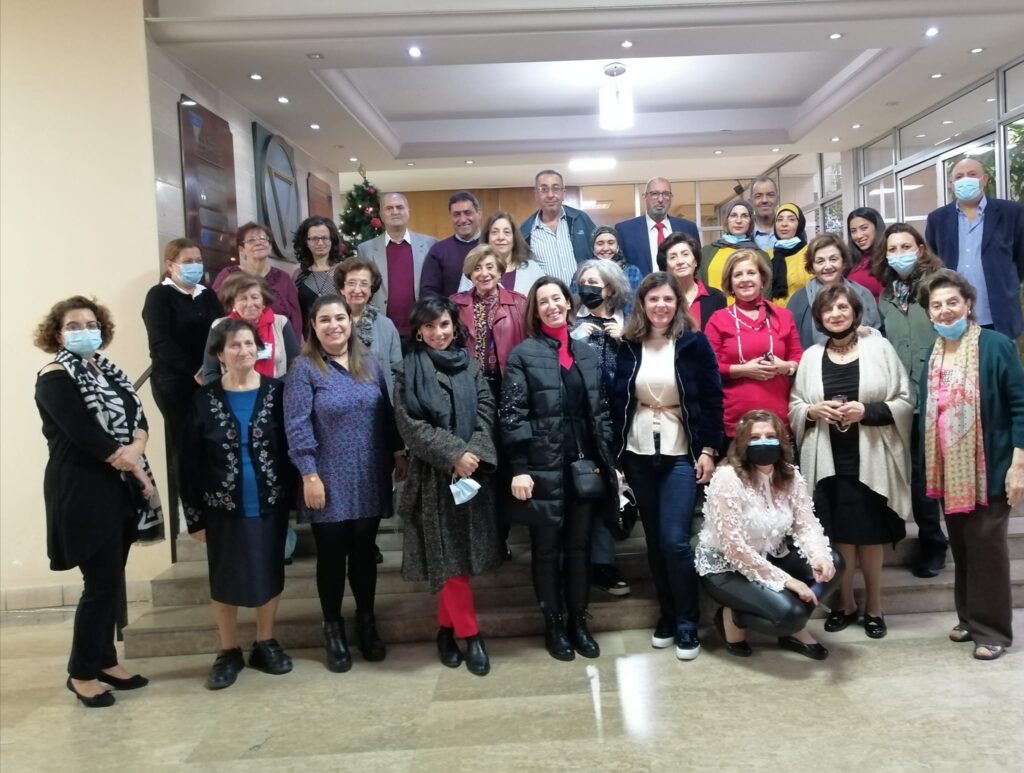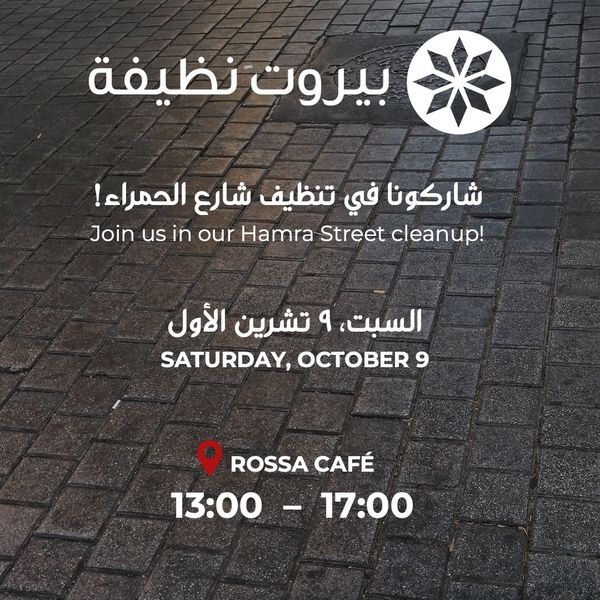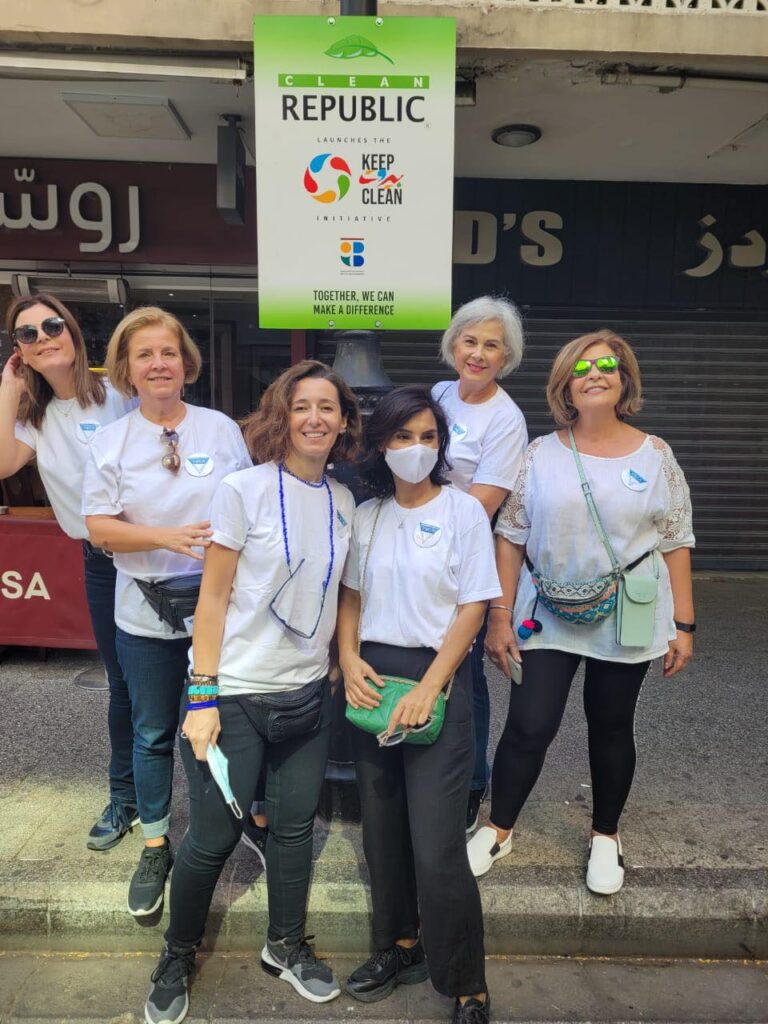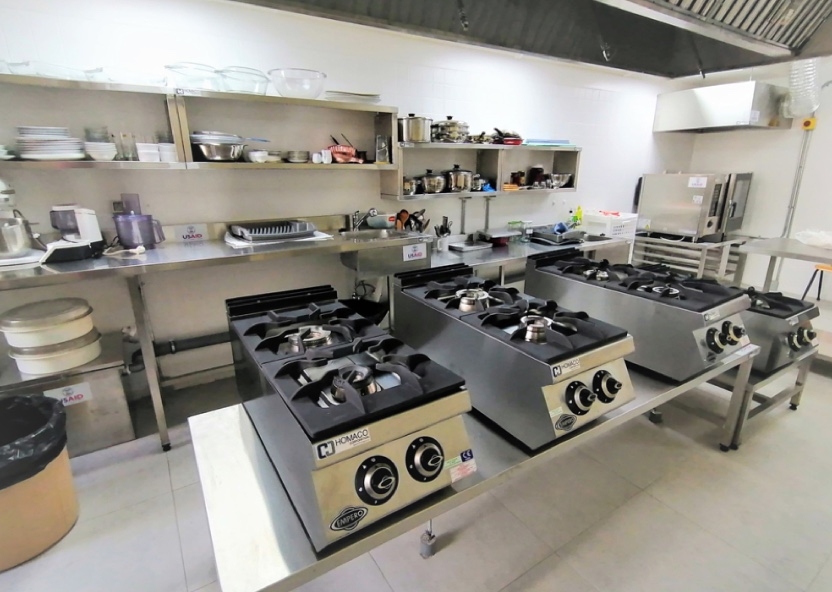History
YWCA was introduced in the Middle East by the American missionaries in the late 19th century. It started in Turkey then in Syria and later in Lebanon.
1900-1912: Lebanon YWCA
- Meetings in homes for Bible study and fellowship.
- Work among students in mission schools.
- The first local committee organized to work among women in Beirut.
1920: Post War Lebanon
- Initiation of YWCA ‘Service Center’ at Jessie Taylor Memorial School, marking the first Center in Lebanon, the Beirut YWCA.
- Opening of first hostel for girls.
- Introduction of educational and recreational programs for women.
1924-1927: Move to Downtown Beirut Business Area
- Work with children and Armenian refugees.
- Introduction of Language and Business Classes.
1927–1935: Move to Fakhry Bey Street
- First summer camp for girls at Araya.
- Development of The Girl Reserves Movement.
- Edma Bayouth, first Lebanese woman co-opted into the work of the YWCA.
- Research on working conditions of women and girls in factories which prompted work on:
- Problem of child labor.
- Working conditions for women (Long hours, poor wages and malnutrition).
1936 –1940: Results of YWCA Research and Action
- Formation of Nutrition camps in Beirut and the mountains.
- Introduction of Night schools in different sections of Beirut
- Inspection of factories with the help of YWCA volunteers and dismissal of underage children.
- Team of A.U.B. student volunteers teaching in night schools.
- Formation of a volunteer committee, including experts, to work on a labor law with special stress on child labor. This led to Legislation No.1946 stipulating:
- 8 hours work/day
- Maternity leave/sick leave
- Non-employment of children under 13 years of age
1940-1943:
- Shift from American leadership to Lebanese
- Work with displaced persons.
- Introduction of Business girls clubs.
- Special attention given to Leadership training for women.
- Introduction of day camps for children.
1944 –1948:
- Beirut YWCA programs housed in five rented localities.
- Decision to have a YWCA building.
- First building campaign.
- Work with Palestinian refugees.
1951- 1962:
- Vocational School established with the support of Point IV, the U.S. aid program.
- Beirut day nursery initiated.
- Purchase of plot in Ain Mreisseh and plans set for the building.
- First Flower Show.
1967:
- Inauguration of YWCA-Beirut building in Ain Mraisseh.
- Initiation of education programs for working mothers with children at the day nursery.
- Employment office started to help graduates of the vocational school.
1978–1991: Civil War in Lebanon
- Special emphasis on emergency relief work and rehabilitation for displaced Lebanese.
- Maintained standard of education and services, stopping only briefly in extremely dangerous conditions.
1992–1999:
- Emphasis on developing young women leaders.
- Updating of vocational programs.
- The YWCA called on by the Ministry of Education to help plan the public vocational training programs.
2000–2003:
- Resumption of flower and Plants Show.
- New age series added to the Technical College Programs.
- Introduction of new image to YWCA-Beirut:
- Face lift to the existing logo
- Printing of new brochures
- Launching of Website
- Revival of the newsletter
- Initiation of The Community Service Committee for the support of Women in the Central
Prison of Baabda.
2004-2009:
- Establishment of “Care for the Environment” and “Center for Women in Crisis” Committees.
- Refurbishing of The Y Cultural Center by a donation from the People of Japan.
- Addition of the third floor to the existing 2 floors of the YWCA Hostel.
- The YWCA Beirut became accessible to persons with disabilities.
- ‘Towards Inclusive Development in Lebanon’: The YWCA selected as an association suitable for the inclusion of persons with disabilities in social and economic life.
- The priorities of CWIC revised to: The empowerment of women at all levels. Several projects implemented to serve this objective.
2010:
- First annual celebration of the International Women’s day on March 8
- Hobbies and Skills program initiated
- Home Care training workshops started
- ” Get Inspired” program introduced by the Leadership Committee
- YWCA became a member of Women in Parliament coalition
- YWCA-Beirut elected as coordinator of Women in Parliament coalition
We are still going on energized by the dedication and persistence of YWCA volunteers……
Reference: “The Lebanon YWCA, one hundred years of service” by Leila Shaheen Da Cruz
2014:
- Cadmos Rotary Club donated full equipment to establish a learning kitchen on the second floor
- Leadership Committee initiated the first Book Club meeting
2015:
SALTO-YOUTH EUROMED
- YWCA-Beirut received the EUROPEAN VOLUNTARY SERVICE accreditation as a sending and receiving of volunteers. Youth mobility from and to EU.
2017:
- ESMOD moves to USJ campus
- 4th floor is turned into a fully equipped hostel for girls
- YWCA- has now 4 floors-dedicated to accommodate up to 120 working women and students
All programs still going on….
2020:
- Spread of pandemic COVID 19 in Lebanon
- Some business closed
- Universities turned to online teaching
- Hostel worked at 20% capacity number of residents
- Cessation of activities, and meetings in house due to continuous lockdowns
- YWCA-Beirut turned to zoom meetings and presentations
4th of August blast:
- The 9 floor building of the YWCA was badly damaged
- All floors were hit above and underground due to impact: 4 hostel residents were injured. The blast had a devastating effect on the whole building: complete damage to: Aluminum doors and windows, glass, wooden doors and partitions.
- Thanks to donations from World YWCA and international friends and associations of churches
- The building was repaired
2021:
- Under the Building Alliance for Local Advancement Development, and Investment – Baladi Program, funded by USAID and executed by Caritas, the project Learning Kitchen Center presented by YWCA-Beirut was approved.
- The project aims at improving learning conditions of the YWCA students, vulnerable women and individuals with special needs by rehabilitating and equipping the YWCA Hospitality Kitchen.
- Introduction of new Art classes: learning new techniques in drawing and perspective
2022:
- Initiation of LKC trainings in February: 5 months training on food production, techniques and cooking, budgeting, marketing and start- up of catering business from home.
- Hobbies and Skills program: Introduce Macrame sessions




